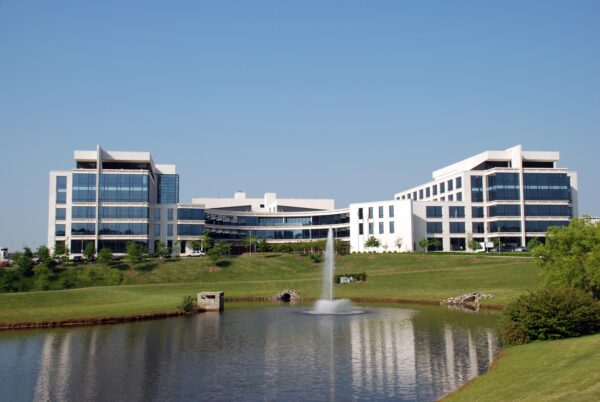
An AstraZeneca location in Gaithersburg, Maryland
Britain’s largest drugmaker has expressed interest in acquiring a U.S. biotech company that recently received authorization to make a drug to treat Covid-19, according to a news report.
Citing unnamed people familiar with the matter, Bloomberg reported Sunday that London-based AstraZeneca had approached Foster City, California-based Gilead Sciences about a possible merger, and Gilead has spoken about the idea with advisers, though no formal talks have taken place.

With the Rise of AI, What IP Disputes in Healthcare Are Likely to Emerge?
Munck Wilson Mandala Partner Greg Howison shared his perspective on some of the legal ramifications around AI, IP, connected devices and the data they generate, in response to emailed questions.
Shares of Gilead rose 3.2% on the Nasdaq when markets opened Monday, while shares of AstraZeneca were down more than 3.3% on the London Stock Exchange. Gilead’s market cap stood at nearly $97 billion, and AstraZeneca’s 106.9 billion pounds, or $135.6 billion. Bloomberg noted that if the deal happened, it could be the largest healthcare deal on record.
Gilead declined to comment, while AstraZeneca did not respond to a request for comment by the time of publication.
The last two major pharmaceutical acquisitions in the past year have been New York-based Bristol-Myers Squibb’s $74 billion deal to buy Celgene and Chicago-based AbbVie’s deal to buy Allergan for $63 billion, the latter of which was completed last month.
In a note to investors Monday, RBC Capital Markets analyst Brian Abrahams wrote that on the one hand, Gilead’s size and improving strategic direction could create hurdles to such a large deal, there could also potentially be some synergies between the two companies. He highlighted Gilead’s “underappreciated” core HIV business, expertise in virology and the development of its oncology and immunology pipelines. A merger, he wrote, would potentially build out some of the weaker areas of AstraZeneca’s portfolio while having synergy in oncology.
The PD-L1 checkpoint inhibitor Imfinzi (durvalumab) is a key oncology asset for AstraZeneca, while Gilead’s oncology assets include the CAR-T cell therapy Yescarta (axicabtagene ciloleucel), as well as the CD47-targeting immunotherapy drug magrolimab, data for which were presented at the recent American Society of Clinical Oncology annual meeting.
In addition to the magrolimab data and data from a trial of Yescarta in indolent lymphomas at ASCO, Gilead has been in the news for receiving an emergency use authorization from the Food and Drug Administration for remdesivir as a treatment for Covid-19, based on data showing it to be effective in reducing the amount of time for hospitalized patients to recover.
Photo: AstraZeneca














